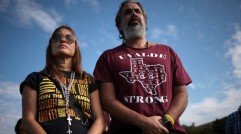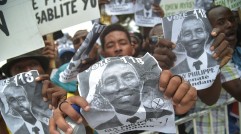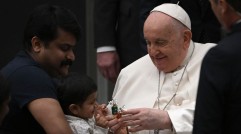Spacex To Send Two Tourists Around Moon In 2018
SpaceX, a private rocket company, has made an ambitious announcement. According to the aerospace manufacturer and space transport services company, two private citizens have paid a heavy amount to be sent around the Moon.
According to BBC, SpaceX CEO Elon Musk stated that the mission is planned for late 2018. He further added that the tourists have already paid a major amount for this tour.
If this feat becomes successful then it will be first human travel to venture out that far into space in 45 years. Needless to say, the term space tourism, which once was impossible to think, is becoming more and more real now.
Till date, only professionals were sent into space who had years of training. These space missions were done mainly for the scientific use and related and were never recreational.
Musk stated that two individuals, who prefer to remain anonymous, have approached the company to see if they can go on a space tour or not. The weeklong cruise will fly them past the surface of the moon and continue till gravity pulls them back to Earth for landing.The spacecraft will not land on the moon.
One of SpaceX's Dragon 2 capsules will house these two tourists and SpaceX's Falcon Heavy rocket would be used for the launch. The travelers will have to take special training for emergencies before the launch but they will not be operating anything as the spacecraft would be automated.
According to New York Times, since the last of NASA's Apollo moon landings in 1972, no astronaut ventured beyond low-Earth orbit. NASA is currently developing the Space Launch System rocket and a capsule, Orion that will soon be able to take astronauts much deep into space once again.
Talking about the risks of such an ambitious mission, Musk stated that the passengers are fully aware of what they are getting into. Both of them know there will be some risks but they want to embark on this journey nonetheless.Musk added that SpaceX is not ignorant of such risks and they are doing everything they can to minimize it. However, it will not be zero.
Subscribe to Latin Post!
Sign up for our free newsletter for the Latest coverage!
* This is a contributed article and this content does not necessarily represent the views of latinpost.com














